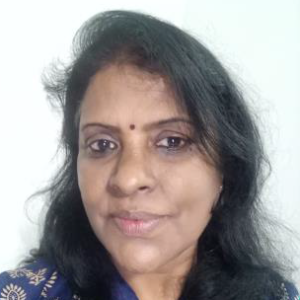Abstract:
Gaucher Disease is a lysosomal storage disorder of autosomal recessive inheritance. It is the second most common type of lysosomal storage disorder which presents due to the deficiency of the enzyme glucocerebrosidase. This enzyme present within the lysosomes of normal individuals digests the glycolipids to smaller olecules. Lack of this ezyme results in the accumulation of the glycolipid glucocerebroside, throughout the body especially within the bone marrow, spleen and liver
Common manifestations of Gaucher disease include hepatosplenomegaly, anemia,,thrombocytopenia, and skeletal abnormalities. The symptoms and physical findings associated with Gaucher disease vary greatly from patient to patient. Some individuals develop few or no symptoms (asymptomatic); others may have serious complications.
Three distinct forms of Gaucher disease separated by the absence (type 1- Non neuronopathic) or presence and extent (type 2 or type 3) of neurological complications. Type 2is also known as acute neuron- pathic Gaucher disease while type 3 is the chronic neuron-pathic Gaucher. All three forms of Gaucher disease are inherited in an autosomal recessive pattern. Additional forms of Gaucher disease include perinatal-lethal form, where disease occurs in less than 5% of patients. This type is very severe and associated with death before 3 months of age or even in the womb. and cardiovascular form
An important aspect is to diagnose the condition early for which a high index of suspicion and algorithmic approach can lead to high yield in screening tests. Hepatosplenomegaly with anemia and thrombocytopenia should warrant a search for other criteria.
This disease which was initially a paediatrician’s dilemma, is now become a condition wher-in several treatment options have become available. Dried blood spot samples can be sent to centres for diagnosis. The Lysosomal storage disorders support society has worked for improving quality of life of these patients. Enzyme replacement therapy as a treatment option has been promoted, and Substrate reduction therapy also has been offered as a treatment modality.




